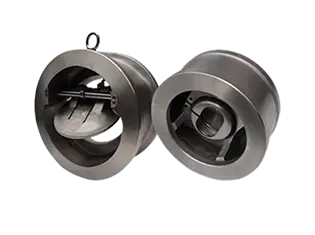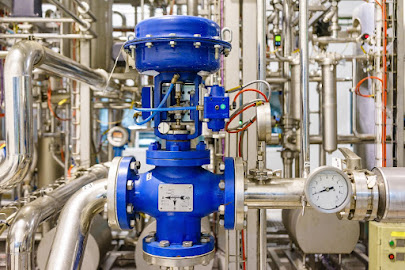Streamlining Operations with Automation Valves: A Guide to Efficiency and Innovation
In the world of industrial processes and manufacturing, precision, speed, and reliability are paramount. Enter automation valves – the unsung heroes that play a crucial role in optimizing operations and driving innovation across various industries. In this blog post, we'll delve into the fascinating realm of automation valves, exploring their functions, benefits, applications, and how they revolutionize the way we work.
Understanding Automation Valves: A Cornerstone of Modern Industry
At the heart of every automated system lies the automation valve, a versatile and dynamic component designed to control the flow of liquids, gases, and other media. These valves, often equipped with smart technology and sensors, serve as the gatekeepers of fluid processes, enabling precise regulation and control.
Functionality Unleashed: How Automation Valves Work
Automation valves utilize a blend of mechanical, electrical, and pneumatic systems to perform their tasks. They can open, close, or modulate flow pathways, ensuring seamless operation within a wide range of applications. Whether it's regulating temperature, pressure, or fluid levels, automation valves execute commands with remarkable accuracy, enhancing efficiency and minimizing human intervention.
Benefits Beyond Measure: The Advantages of Automation Valves
Enhanced Precision: Automation valves offer unmatched precision in controlling fluid processes, resulting in consistent product quality and reduced waste.
Increased Efficiency: By eliminating the need for manual adjustments, automation valves optimize workflows, reduce downtime, and boost overall operational efficiency.
Data-Driven Insights: Many automation valves are equipped with sensors that provide real-time data on performance, enabling predictive maintenance and informed decision-making.
Safety and Reliability: These valves enhance workplace safety by reducing human exposure to hazardous environments and ensuring reliable operations even in challenging conditions.
Cost Savings: Through improved efficiency and reduced downtime, automation valves contribute to significant cost savings over the long term.
Applications Across Industries: From Manufacturing to Energy
The versatility of automation valves makes them invaluable across a spectrum of industries:
Manufacturing: Automation valves regulate production lines, ensuring consistent output and minimizing defects.
Energy: In power generation and distribution, automation valves control the flow of steam, gas, and other resources, optimizing energy production.
Water Management: Automation valves play a vital role in water treatment and distribution systems, managing fluid flow and ensuring water quality.
Chemical Processing: Precise control over chemical processes is essential, and automation valves enable safe and efficient handling of volatile substances.
Oil and Gas: From refining to transportation, automation valves facilitate the complex processes within the oil and gas industry.
Embracing the Future: Automation Valves and Industry 4.0
As industries embrace the principles of Industry 4.0, automation valves are evolving to integrate seamlessly into the digital landscape. With the integration of IoT (Internet of Things) technology, these valves become part of a connected ecosystem, allowing for remote monitoring, predictive maintenance, and adaptive control strategies.
Conclusion: The Power of Precision and Progress
In conclusion, automation valves are the unsung heroes that drive efficiency, reliability, and innovation in modern industries. Their ability to precisely control fluid processes, enhance safety, and provide real-time insights makes them indispensable across various sectors. As technology continues to advance, automation valves stand as a testament to the power of human ingenuity, shaping a future where precision and progress go hand in hand.




Comments
Post a Comment